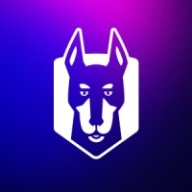

Snyk and AWS Security Hub are both top contenders in the security solutions category, each offering distinct advantages. Snyk appears to outperform in integration capabilities and ease of use, making it particularly appealing to developers. In contrast, AWS Security Hub provides a comprehensive scope of services, especially suited for AWS-centric environments.
Features: Snyk offers straightforward integration with tools such as IDEs, CI/CD pipelines, and notifications through Slack, making it cost-effective for developers focused on cloud security and source control integration. Snyk’s container security features help developers maintain application security. AWS Security Hub, however, excels in comprehensive alerts and monitoring capabilities with its seamless integrations across AWS native services, and third-party tools, benefiting organizations already invested in AWS infrastructure.
Room for Improvement: Snyk could enhance its offerings by including additional security scanning types like SAST and DAST, and by providing more granular controls over notifications and reports. AWS Security Hub, on the other hand, could improve its dashboard sophistication and extend integrations with non-AWS or open-source solutions to broaden its appeal.
Ease of Deployment and Customer Service: Snyk is known for its easy deployment and offers robust support with dedicated customer success managers, making it convenient for quick integration. AWS Security Hub, specific to AWS environments, lacks multi-cloud flexibility but ensures competent customer support, accommodating users focused on AWS environments.
Pricing and ROI: Snyk, viewed as a premium solution, is priced based on usage and the number of developers, which can seem costly to some but offers significant ROI by reducing developer hours. AWS Security Hub follows a pay-as-you-go model that is beneficial for existing AWS customers, providing a cost-effective option for those already leveraging AWS infrastructure.
| Product | Market Share (%) |
|---|---|
| Snyk | 3.2% |
| AWS Security Hub | 3.9% |
| Other | 92.9% |


| Company Size | Count |
|---|---|
| Small Business | 10 |
| Midsize Enterprise | 5 |
| Large Enterprise | 12 |
| Company Size | Count |
|---|---|
| Small Business | 21 |
| Midsize Enterprise | 9 |
| Large Enterprise | 21 |
AWS Security Hub is a comprehensive security service that provides a centralized view of security alerts and compliance status across an AWS environment. It collects data from various AWS services, partner solutions, and AWS Marketplace products to provide a holistic view of security posture. With Security Hub, users can quickly identify and prioritize security issues, automate compliance checks, and streamline remediation efforts.
The service offers a range of features including continuous monitoring, threat intelligence integration, and customizable dashboards. It also provides automated insights and recommendations to help users improve their security posture. Security Hub integrates with other AWS services like Amazon GuardDuty, AWS Config, and AWS Macie to provide a unified security experience. Additionally, it supports integration with third-party security tools through its API, allowing users to leverage their existing security investments.
With its user-friendly interface and powerful capabilities, AWS Security Hub is a valuable tool for organizations looking to enhance their security and compliance posture in the cloud.
Snyk excels in integrating security within the development lifecycle, providing teams with an AI Trust Platform that combines speed with security efficiency, ensuring robust AI application development.
Snyk empowers developers with AI-ready engines offering broad coverage, accuracy, and speed essential for modern development. With AI-powered visibility and security, Snyk allows proactive threat prevention and swift threat remediation. The platform supports shifts toward LLM engineering and AI code analysis, enhancing security and development productivity. Snyk collaborates with GenAI coding assistants for improved productivity and AI application threat management. Platform extensibility supports evolving standards with API access and native integrations, ensuring comprehensive and seamless security embedding in development tools.
What are Snyk's standout features?Industries leverage Snyk for security in CI/CD pipelines by automating checks for dependency vulnerabilities and managing open-source licenses. Its Docker and Kubernetes scanning capabilities enhance container security, supporting a proactive security approach. Integrations with platforms like GitHub and Azure DevOps optimize implementation across diverse software environments.
We monitor all Cloud Security Posture Management (CSPM) reviews to prevent fraudulent reviews and keep review quality high. We do not post reviews by company employees or direct competitors. We validate each review for authenticity via cross-reference with LinkedIn, and personal follow-up with the reviewer when necessary.